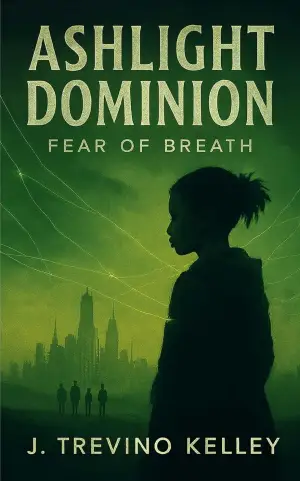Book Review of The Reich That Never Fell by Alex R. Wells
As an avid reader with a fascination for alternative history, I was immediately drawn to The Reich That Never Fell. The premise—a world where Nazi Germany is victorious in World War II— piqued my interest because of its potential for both thrilling speculative narratives and deep historical insights. I appreciate how history shapes our present, and this book promised a captivating exploration of a timeline where everything we know has drastically changed.
From the very first chapter, Wells immerses readers in a chilling new reality, painting detailed scenes of a world under the oppressive shadow of fascism. The exploration of everyday life in this alternate timeline—from the redrawn maps to a culture permeated by totalitarian ideology—was one of the book’s strongest points. The author skillfully weaves intricate political landscapes alongside advancements in technology and even hints at space exploration, igniting the imagination with “what if” scenarios. The concept of a world where Churchill is branded a war criminal and America teeters on the edge of despair is both provocative and thought-provoking.
That being said, I found myself grappling with a couple of drawbacks. Some sections of the book felt a bit rushed; while the premise is undeniably captivating, there were moments when I wished for deeper character development. Wells provides rich historical context, but exploring the nuances of personal stories against this backdrop could have elevated the narrative further. Additionally, some descriptions of techniques and technologies were engaging but occasionally bordered on overwhelming, leading to mild confusion rather than fascination.
While some readers might have expressed disappointment with character arcs, I found the protagonist’s journey, albeit needing more depth, compelling enough to keep me invested. Similarly, the pacing felt uneven at times; however, I appreciated the author’s ambition in exploring such a vast narrative. The short length of the book (160 pages) meant that it was difficult to delve deeply into every theme, but that brevity also kept the story moving briskly.
One standout aspect of the book is how it brings to life the chilling consequences of a world dominated by a fascist regime. Wells thoroughly examines the implications of political shifts and cultural upheaval, allowing readers to reflect on the thin line between our current reality and the alternate one depicted in the novel. In that sense, the book successfully met my expectations set by the official description, inviting me to reconsider how close we’ve come to a world shaped by totalitarian ideologies.
Overall, The Reich That Never Fell left me both entertained and contemplative. It is a well-crafted blend of history and speculation that will resonate with readers passionate about political intrigue and alternate histories. Although it has its pacing issues and character depth could be enhanced, the storytelling is engaging and thought-provoking. I believe that fans of alternative history will find this book a worthy addition to their collection.
In closing, if you’re curious about the potential trajectories of history and enjoy narratives that challenge the status quo, I recommend giving this book a try. It offers a thought-provoking glimpse into a world that could have been—definitely an exciting read that I won’t soon forget!








